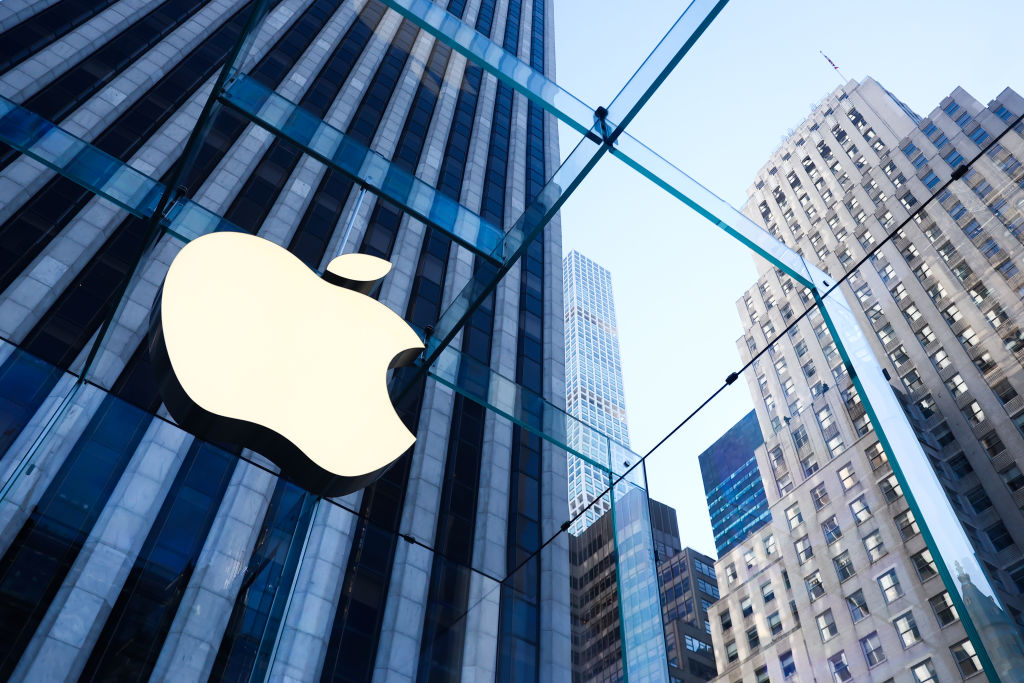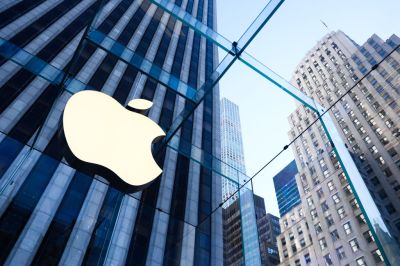Editor’s Note: We hope you enjoy this edition of Techne, a new newsletter by Will Rinehart dedicated to unraveling the complex forces shaping tech policy and innovation. To learn more, check out the introduction Will wrote a few weeks ago, and be sure to sign up here to receive future editions in your inbox.
Welcome back to Techne! The flowers and the trees are budding in Washington, so I couldn’t help but think of all the pollen in the air reading Lisel Mueller: “When the light strikes at odd angles / and pulls you back into childhood.”
Notes and Quotes
- Three new Aztec codices—manuscripts of pre-Columbian Aztecs and their descendants during the colonial period in Mexico—have been made public.

- Intel has been awarded $8.5 billion in CHIPS Act funding to expand the production of advanced semiconductors in Arizona, New Mexico, Ohio, and Oregon.
- Florida Gov. Ron DeSantis signed a bill earlier this week that completely outlaws social media for minors under the age of 14.
- Sen. Marco Rubio of Florida penned a defense of industrial policy in National Affairs. “To suggest that government ‘interventions’ in the economy are doomed to fail is to ignore the lessons of America’s past,” he wrote. “Industrial policy has done much good in America—and it can do so once again.”
- The aerospace company Boom has successfully flown the XB-1, the world's first independently developed supersonic jet. The test is another step in the return of supersonic passenger jets.
- To rival proposed Chinese lunar bases, the Defense Advanced Research Projects Agency—an agency housed within the Pentagon that develops tech for military use—is calling for proposals to develop an American lunar train.
- Legal scholars Corbin Barthold and Daphne Keller broke down the various social media cases heard by the Supreme Court this term on the latest episode of the Tech Policy Podcast.
- Nvidia held its big developer conference last week, announcing a new chip to power artificial intelligence (AI). The company’s GPU Technology Conference is quickly becoming a hotspot for the launch of new AI products, and Eric Topol detailed all the new healthcare applications mentioned there in his latest Substack post. Zvi Mowshowitz also has a massive roundup of what’s been happening in the AI space.
- The Rapa Nui, the people who erected the large megaliths on Easter Island, likely invented writing on their own before Europeans arrived in the 1720s, according to new research on their ancient scripts. Writing is believed to have been invented independently four times: in Mesopotamia around 3,400 B.C., in Egypt around 3,250 B.C., in China in 1200 B.C., and in Mesoamerica before 500 B.C.

- The Future of Life Institute—a nonprofit that focuses on the threats of advanced technology—reportedly received a $665 million donation from cryptocurrency inventor Vitalik Buterin in 2021 to work on AI policy. I’ve argued previously that the group’s call to “pause” AI development is not constitutional.
- A new report from the Foundation for Defense of Democracies calls on the Defense Department to set up a Cyber Force branch to sit alongside the Army, Navy, Air Force, Marine Corps, and Space Force.
- Vernor Vinge, the author who popularized the concepts of cyberspace and technological singularity, passed away last week. Ars Technica explains why he should be remembered.
The DOJ Sues Apple

Last week marked the beginning of another significant legal battle in the tech world, as the Department of Justice (DOJ)—along with 15 states and the District of Columbia—filed an antitrust case against Apple. The core of the lawsuit, formally known as United States v. Apple, claims the company has abused its market position to the detriment of both consumers and app developers.
With U.S. v. Apple, the DOJ has fulfilled an agreement it reached with the Federal Trade Commission (FTC) in June 2019 to split up enforcement of “Big Tech” through antitrust cases. The other open cases include:
- Federal Trade Commission v. Meta, a suit trying to undo the Instagram and WhatsApp acquisitions;
- Federal Trade Commission v. Amazon, which pertains to the fees and contracts of Amazon’s online marketplace; and
- United States v. Google (2020), a case challenging Google’s dominance in the search engine and search advertising markets. This is not to be confused with United States v. Google (2023), a case related to Google’s advertising technology products.
Tuesday’s Morning Dispatch (🔒) by Mary Trimble and Grayson Logue included an excellent overview of the case against Apple, and you should read it to understand the complete picture. Tech policy—and antitrust policy, especially—is tough to get right, and I wish I had written that newsletter.
In today’s edition, though, I’ll dive deeper into some of the minutiae of the case. This is only a first read of the case. As it develops in the court, the arguments are sure to shift.
DOJ’s case against Apple.
I’ve read all of the complaints against the tech giants, and this one against Apple follows a similar pattern. They are laid out as modern tragedies—in Aristotle’s sense of a tragedy—with a beginning, a rising action, a change of fortune, and a fall from grace. Like any good tragedy, the Apple complaint ends with a catharsis, an act of purification or cleansing as the ancient Greeks would have understood it. And also like any good tragedy, the remedies need to match the behavior.
The beginning of this particular tale starts in 2007 when, in the DOJ’s words, “Apple launched the iPhone, a smartphone that offered high-end hardware and software applications, called ‘apps,’ built atop a mobile operating system that mimicked the functionality and ease of use of a computer.” Initially, the company only offered a small number of apps, but it “quickly realized the enormous value that a broader community of entrepreneurial, innovative developers could drive to its users and the iPhone platform more broadly.”
In fairness, Steve Jobs originally wanted to keep the iPhone ecosystem relatively closed. But when the late Apple co-founder previewed the application integration system at Apple’s developer conference in 2007, it was largely seen as a miss. Pressure from the developer community and the success of Facebook’s platform coaxed Jobs into opening the system. “We are excited about creating a vibrant third-party developer community around the iPhone,” Jobs said, “enabling hundreds of new applications for our users.” Those “hundreds” of new applications quickly turned into millions.
In the DOJ’s telling, Apple’s power grew alongside its iPhone sales, and “its leverage over third parties reinforced its tight control over how third parties innovate and monetize on and off the smartphone in ways that were anticompetitive and exclusionary.” As evidence of this bad behavior, the DOJ points to five areas where it believes there should be more competition:
- Super apps like WeChat provide a user with broad functionality in a single app. But Apple has suppressed these apps, because they require App Store approval for each program, thus harming smartphone users “by denying them access to high-quality experiences.”
- Cloud streaming game services “can improve smartphone competition by decreasing the importance of expensive hardware for accomplishing high compute tasks on a smartphone.” But Apple has denied applications from playing “high-compute games,” once again because they require each game to go through the App Store approval process.
- “Apple makes third-party messaging apps on the iPhone worse generally and relative to Apple Messages, Apple’s own messaging app, by prohibiting third-party apps from sending or receiving carrier-based messages.”
- Smartwatches also allegedly show how Apple has hurt competition. Because Apple doesn’t allow smartwatches to “respond to notifications and messages and to maintain consistent connections with the iPhone,” the DOJ avers, “Apple has denied users access to high performing smartwatches with preferred styling, better user interfaces and services, or better batteries.”
- Digital wallets are an increasingly important app on smartphones. But “Apple has denied users access to digital wallets that would have provided a wide variety of enhanced features and denied digital wallet developers—often banks—the opportunity to provide advanced digital payments services to their own customers.”
Together these five actions, intertwined with other allegedly problematic behaviors, helped concoct what has been dubbed in antitrust circles the “monopoly broth that produces the unsavory flavor.” But I would categorize this broth as pretty weak: It needs much more salt, which might be provided when it hits the courts.
Why the DOJ’s case falls flat.
U.S v. Apple will be Assistant Attorney General Jonathan Kanter’s legacy. In his prepared remarks for the case announcement, Kanter put this lawsuit next in line after Standard Oil, AT&T, and Microsoft, each blockbuster cases that helped to redefine the field: “Today, we add to that distinguished legacy by announcing an antitrust lawsuit against Apple for monopolizing smartphones.”
But the case has a lot of holes, so Kanter’s effort to reshape the antitrust regime in the United States might fall flat.
While the complaint never explicitly mentions WeChat, news outlets quickly singled out the app as a potential beneficiary of any antitrust action against Apple. Super apps like WeChat provide messaging and payment processing together in a format that allows for a self-contained commerce and communication platform.
In the DOJ’s telling, super apps reduce user dependence on the iPhone “because a super app is a kind of middleware that can host apps, services, and experiences without requiring developers to use the iPhone’s APIs or code.” As the super app develops, users “rely less on the smartphone’s proprietary software and more on the app itself.” Apple’s rules haven’t wavered; it has long disallowed apps-within-apps, and each application has to get approval.
There is some truth to the DOJ’s narrative. In an interview conducted around the time Apple was ramping up its supposed leverage over apps, Karel Baloun—the first senior engineer at Facebook—explained that Silicon Valley at that time was worried about getting “WeChatted.” That was the term most were using to describe a super app popping up to compete against the entire stack. Given his experience, Baloun had long been attuned to the competitive aspects of big tech companies. His comments underscore that Apple wasn’t the only company concerned about super apps—Facebook was, too. But Apple can easily point out that both WeChat and Facebook have long been available on the App Store, undercutting this part of the case.
The DOJ also contends in the lawsuit that cloud streaming games have the potential to enhance smartphone competition by reducing reliance on costly hardware. But that’s an odd proposition to make. A more competitive world, to the DOJ, would mean that Apple is providing a less costly product.
Instead, there is a much simpler explanation for the first two chides by the DOJ. Apple aims to integrate all of the components into a bundle, brand it, and then sell the entire package. The company’s story about product design and management is well known. It pioneered and built iPhone processors using the ARM chipset architecture, which it then brought into all of its products, including all of the current Macbooks. ARM is widely recognized as being faster and more efficient. But Apple had to design all of its components, bring about their manufacture, and then integrate them into a platform product to be sold widely. In other words, the DOJ will have to parse the bad effects from the broader story of hardware-software integration that the company is known for. I’m not sure the agency will win here.
Apple’s text messaging has always been a bone of contention and, like most complaints against the company, the DOJ’s lawsuit brings up the issue of the dreaded green bubble of Android users. Still, I don’t think this concern will be relevant for long. Late last year, Apple indicated it is planning to implement the Rich Communication Services (RCS) standard on iPhones, which will allow Android and iOS devices to send text messages securely. iMessage is encrypted end-to-end and only recently has Google and the rest of the industry committed to this level of encryption. This new standard will allow for extended message lengths, sharing of high-resolution images, read receipts, indicators for when someone is typing, the use of GIFs, sharing of one’s location, messaging via Wi-Fi, and enriched group chat features within a secure standard. It should make moot the concerns laid out in the complaint.
While official data is scarce, smartphone users surveyed typically rank iMessage fourth among the most-used messaging apps, behind Facebook Messenger, Facetime, and WhatsApp. To make this charge stick, the DOJ will need to convince the courts that the relevant market is more narrow than just messaging apps.
Smartwatches are another area of the ecosystem where Apple is allegedly having a detrimental impact. Because Apple doesn’t allow non-Apple smartwatches to “respond to notifications and messages and to maintain consistent connections with the iPhone,” the DOJ contests, “Apple has denied users access to high performing smartwatches with preferred styling, better user interfaces and services.” Again, when RCS is fully implemented, many of these concerns are likely to fade away. I also expect that Apple will argue it has grown the smartwatch market by allowing FitBit and other providers secure access to health data on the iPhone.
Digital wallets are an unusual inclusion on the DOJ’s list, in my opinion, because they are an example where you’d expect to see integration, according to economic theory. When there is demand for trust in the process—especially in financial transactions—you want to integrate everything. It makes sense, then, why both Apple and Google have been undergoing this process at the same time. Google Pay’s iOS app was recently retired and integrated into the Google Wallet. Google said it would make the entire process simpler and more secure. Apple did exactly the same.
Besides, if the DOJ wanted to remedy this problem, they would likely have to force the company to open up the Apple Pay component security system. Payments are complicated and it’s not clear to me that the DOJ has a shining example of harm. The better story is that Apple is trying to provide security for financial transactions.
What next?
How likely is it that the DOJ’s suit against Apple will prevail?
I’ve long thought the DOJ’s case focusing on Google’s advertising technology was the strongest of the Big Tech antitrust probes. But even in that instance, I’d rate the government’s odds of success as slim. In an effort to be a little more scientific, Daniel Crane, a law professor at the University of Michigan, recently reached out to fellow academics with a questionnaire aimed at ranking the legal challenges by the strength of their arguments. Nineteen antitrust professors answered, and according to Crane, they were all “distinguished in the field, fair-minded, and highly knowledgeable.” Compiling the rankings yielded a consensus view:
A clear separation emerges from the raw scores. Google is the consensus choice for the strongest government case; Amazon is the consensus choice for the weakest government case. Indeed, not a single respondent ranked Amazon the strongest government case, and only one ranked Google the weakest. … Respondents were consistently bullish on Google (from the government perspective) and bearish on Amazon. Facebook and Apple were a toss-up in the middle.
All of this is to say that, under existing Supreme Court precedent, the DOJ’s case faces serious hurdles. At its core, the complaint alleges that Apple withheld access to specific applications from competitors or potential competitors, which could have increased its immediate profits. But the problem is that Apple never allowed those contracts in the first place, so they didn’t give up profits. Mizzou Law Professor Thom Lambert offers a deeper read of the two common holdings in the law for these kinds of antitrust cases, Aspen Skiing and Trinko, and what they might mean for Apple.
Besides, even if the DOJ were to win this case, they would struggle to make remedies work. As Alden Abbott, former general counsel of the Federal Trade Commission, pointed out, the proposed remedies in the complaint “would be virtually impossible to administer by a court. This would lead to constant litigation and haggling over whether future actions by Apple fell within the decree, thereby hobbling Apple and diminishing its future innovation.” The subtext here is United States v. AT&T, the 1982 case that led to the break up of the telecom company. The DOJ was able to secure an antitrust judgment against AT&T in that instance, but it spent the next decade in the courts trying to administer the decision. It was a mess that eventually led to a new law regulating telecommunications.
The DOJ is confident in its case’s ultimate aims. U.S. v. Apple is “about freeing smartphone markets from Apple’s anticompetitive and exclusionary conduct and restoring competition to lower smartphone prices for consumers, reducing fees for developers, and preserving innovation for the future.” But the DOJ's confidence seems to overlook the substantial challenges in proving Apple's conduct crosses the line into illegality, especially in a sector as rapidly evolving and competitive as technology.
Until next week,
🚀 Will
Research and Reports
- Joshua Gans, a leading economist working on AI and competition issues, is out with a new extended literature review exploring “Market Power in Artificial Intelligence.”
- I just started reading this new paper from Brian Feinstein and David Zaring—two professors at the University of Pennsylvania—on “the gradual transformation of independent commissions into chair-dominated entities,” but I already think that every administrative law nerd should check it out. I spend a lot of time thinking about independent agencies like the FTC and the Federal Communications Commission (FCC). This piece is a good overview of the broad trends






Please note that we at The Dispatch hold ourselves, our work, and our commenters to a higher standard than other places on the internet. We welcome comments that foster genuine debate or discussion—including comments critical of us or our work—but responses that include ad hominem attacks on fellow Dispatch members or are intended to stoke fear and anger may be moderated.
With your membership, you only have the ability to comment on The Morning Dispatch articles. Consider upgrading to join the conversation everywhere.